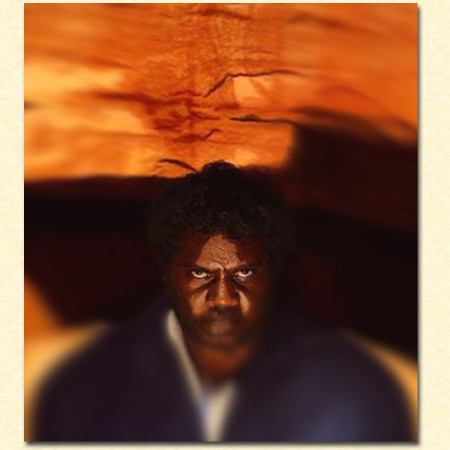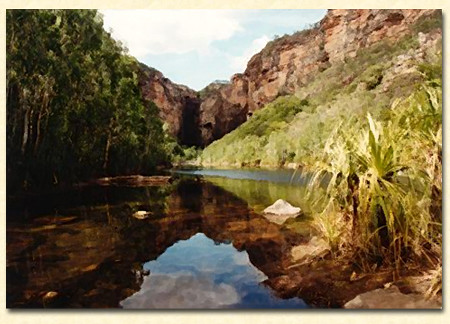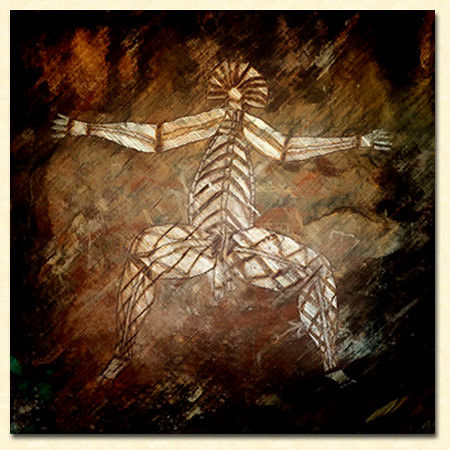Would you walk away from $5 billion to save the land?
"This is my country. Look, it's beautiful and I fear somebody will disturb it," he says, waving his arm across a view of rocky land surrounded by Kakadu National Park, where the French energy giant Areva wants to extract 14,000 tonnes of uranium worth more than $5 billion.
Jeffrey Lee is the sole remaining member of the Djok clan (which must be a lonely fate.) He alone is the custodian and protector of his tribal land, the Koongarra. "I'm not interested in money. I've got a job; I can buy tucker; I can go fishing and hunting. That's all that matters to me," said Lee, who has vowed that he will never allow the ecologically sensitive land to be opened up to mining. Not at any price.
Even $5 billion.

The skyrocketing price of the uranium under his tribal land could make him one of the richest men in the world. Think about that. He would be in the company of financial giants like Bill Gates. He'd never want for anything again; could own fast cars, be financially secure with never a health care concern, live anywhere - or everywhere - and be a power broker. A mover and shaker.
But Lee isn't interested in these things. Lee isn't a taker; he is a protector:
Mr Lee said there were places on his land where the rainbow serpent had entered the ground that were so sacred, "I can't even go to them or talk about them.
"I can't allow people to go around disturbing everything."

Lee is apparently that rare human for whom the lust for power and wealth holds no siren song, no dark pull. His wealth lies all around him in the soaring beauty and simple pleasures of his heritage, the land.
Lee, who works as a ranger Kakadu, wants to see his tribal land incorporated into the national park where "it will be protected and safe forever".
Koongarra is only three kilometers from Nourlangie Rock; one of the most famous sites in Kakadu, Australia. Mr Lee's determination to ban all mining on his land puts pressure on the Federal Government to formally incorporate it into Kakadu National Park.
The government has agreed in principle for Koongarra to be incorporated into the park 'at the request of the tribal owners.' And the only tribal owner left is Jeffrey Lee.
"There's been a lot of pressure on me, and for a very long time I didn't want to talk or think about Koongarra," Mr Lee said.
"But now I want to talk about what I have decided to do because I fear for my country.
"I was taken all through here on the shoulder of my grandmother. I heard all the stories and learnt everything about this land, and I want to pass it all on to my kids."
This week Mr Lee took the Herald to a rocky outcrop overlooking the Koongarra deposit, a sacred place where, according to his clan's beliefs, a giant blue-tongue lizard still lurks and should not be disturbed.
Here it is, painted on a rock hundreds, perhaps even thousands, of years ago, its jaw apparently bitten off in a mystical fight.
This is what Mr Lee calls a djang, or place of spiritual essence, which he has closed to the 230,000 tourists who visit Kakadu each year.
"My father and grandfather said they would agree to opening the land to mining, but I have learnt as I have grown up that there's poison in the ground," he said.

Five billion is an enormous amount of money. But if money is the only thing one seeks in life... is there ever really enough? And will you ever really be happy?
Labels: Areva, Australia, conservation, France, greed, Kakadu National Park, nature, uranium



























































0 Comments:
Post a Comment
<< Home